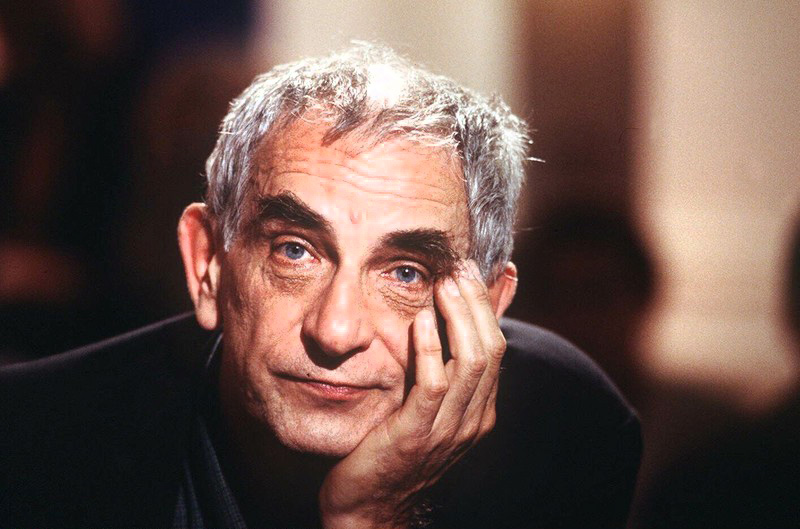.: Spring '16 :.
Three Colors: Blue, White, and Red
Directed by Krzysztof Kieślowski
March 2nd, 16th, and 23rd
Dryden Theatre, 900 East Avenue

In commemoration of the 20th anniversary of the death of Krzysztof Kieślowski (1941-1996), arguably the best-known contemporary Polish filmmaker, the Skalny Center is proud to be a Community Partner of the screening of his Three Colors trilogy at Dryden Theatre, George Eastman Museum.
Schedule
Wednesday, March 2nd, 8 p.m.
Three Colors: Blue
Trzy Kolory: Niebieski, 1993, France/Poland/Switzerland 94 min French w/subtitles
Kieślowski's Three Colors, a major cinematic achievement of the 1990s, is a trilogy inspired by the French tricolor, in which blue stands for liberty, white for equality, and red for fraternity. Set in Paris, Warsaw, and Geneva, and ranging from tragedy to comedy, Blue, White, and Red (Kieślowski’s final film) examine a group of people facing moral dilemmas, with their individual quest for the three values embodied in the French flag. Marked by intoxicating cinematography and stirring performances by such actors as Juliette Binoche, Julie Delpy, Irène Jacob, and Jean-Louis Trintignant, Kieślowski’s Three Colors is a benchmark of contemporary cinema.
Regular admission $8.00, $6.00 for members, and $4.00 for students.
Three Colors: Blue
Loosely based, both thematically and visually, on the colors of the French flag, Kieslowski’s trilogy examines the tenuous bonds that connect people and the haphazard events that forge or break them. A restrained coolness pervades Blue, which stars Juliette Binoche as a recent widow who passes through life, evading contact with the world and its painful reminders of her lost past. But the entreaties of a former lover and a friendship with the prostitute downstairs threaten to draw her back into the realm of relationships and feeling. Beautifully shot and daringly edited, Blue also earned Binoche a Best Actress Award at Cannes.

Three Colors: White

Clever plot twists color the desolate landscapes in the second installment of Kieslowski’s trilogy, as the theme of equality is filtered through the distorted lens of obsessive love. Karol (Zbigniew Zamachowski), an impotent hairdresser, returns to his native Poland after being unceremoniously dumped by his sexy young Parisian wife (Julie Delpy). Although straying from subway musician to hit man to bodyguard to entrepreneur, he remains fixated on exacting revenge in this highly original work, which recalls Kieslowski’s more comedic (albeit darker) side.
Three Colors: Red
A triumphant finale to both the trilogy and an illustrious career, Red not only connects the glowing signposts of Kieslowski’s work but also transmits the signal among the disjointed elements of the everyday. In what many call an extension of her role in The Double Life of Veronique, Irene Jacob plays a young model unexpectedly caught in the modern peeping-tom activities of a retired judge. Finding herself increasingly implicated in the private lives of others, Jacob extends a halting fraternal hand—as does the film in its unique ability to make its heroine’s experience the viewer’s as well.
